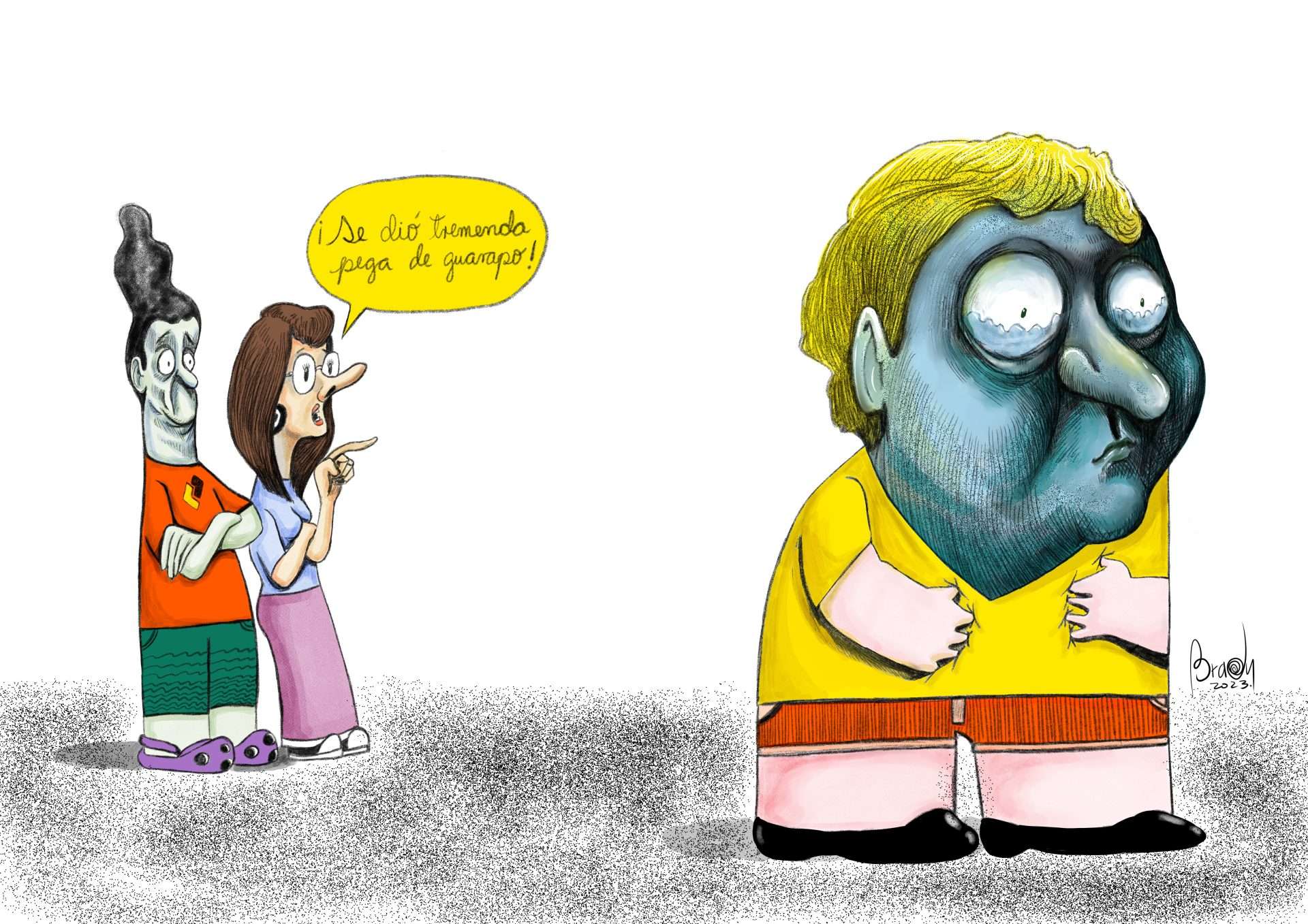Some day soon the creative history of Cuban Spanish will be written. Their random processes of confluence and transformation will be told. Also the turns that many words have taken to potentiate their capacity for meaning.
I have dedicated space before to some of our terms that, taking advantage of an initial meaning, begin to generate new areas of meaning. Those that amplify its possibilities of use in everyday speech. In this group of multifaceted words we necessarily have to also include the uses of “paste”. Not in its meaning of delivering a blow, but the one that refers to the action of joining two surfaces or two objects in such a way that there is no space that separates them.
Obviously, the idea of union, of approximation, is very rich. Our daily communication has made significant use of these potentialities. It is very common to hear someone say, when leaving their house: “I’m going to see what sticks to me there.” Once he returns, those who saw him leave ask him: “Did you catch something?” Among Cubans we know very well the codes that operate in this particular situation. What can be “hit” could consist of food, products of any kind and even an intimate relationship.
In the field of the kitchen, the “paste” also has several uses. To those who have not yet mastered the culinary arts, it is very possible that the beans, rice, or an egg will “stick” to the pan. In this case, “paste” replaces “burn” or “exceed” the cooking time. However, when we talk about the act of eating, “sticking” means eating abundantly and excessively: “I got a tremendous amount of flour sticking.” Arriving unannounced at someone else’s house for lunch or dinner, or simply staying to eat when it was not in the plans, is “sticking the cap”.
On the other hand, in general, being a “pegao” describes a person who is annoyed or uncomfortable by their unsolicited presence or, as we say in Cuban: because they “invite themselves”. Who appears every day at lunchtime, is a “stick”; who joins a group for a trip or outing without being invited, is a “pagao”; who constantly bothers with an annoying matter or with the mere presence of it, is a “pagao”; and so on.
Perhaps for this reason we find in our daily communication a large number of expressions in which the notion of “hitting” acquires a negative or pejorative nuance, in the sense that it tries to regulate behaviors that have to do with being too close, with the unsolicited presence or with the insistence on a matter that is not pleasant to us.
For example, the variants “sticky”, “pegazón” and “pegadera” seem to be derived from this, generally used in restrictive expressions: “Compadre, leave the sticky thing”, “those two always have tremendous stickiness” (said of a couple too effusive in bodily contact), “I don’t like being sticky in the bus”, “this sweat makes me sticky”, “So-and-so, what’s the sticky thing? Go over there”… Especially on public transport it is very common to hear this type of expression. Another, usually warns someone of the male sex of getting too close to another person’s virile member: “Consort, you’re hitting the mandao on me.”
Along the same lines, “hitting”, the action of uniting, approaching or placing in a neighborly relationship can lead to something unwanted or counterproductive: either a negative behavior that we do not want to acquire or that another acquires (“don’t hang out with Fulano anymore vices hit you”), an atmosphere or state that we do not consider healthy or adequate (“I don’t go to that house because bad things stick to me”), a smell or aroma that we want to avoid (“if I don’t apply deodorant it the plague hits the jackdaw”), pieces of clothing or colors that do not match (“that blouse doesn’t match your skirt”, “red does not match green”), attitudes that do not correspond to a certain person (“being a clown doesn’t hit you”), people who don’t make a good couple (“they are both very different, they don’t hit”), among others.
It is very common that on the island many of these uses are condensed into forceful phrases or, as they say popularly: “closers”. With the “paste” we have a real jewel that has become widely used in recent decades. If someone invades our privacy, if they bother us too much with a matter, if they exceed the trust we have given them, if they interfere in our conversation without permission, if they want to demonstrate to others a closeness and attachment that we have not given them, if –in a general way– he exceeds a limit that he seems not to have noticed, then we call that person “a chapter”: “dance but don’t hit each other”.
However, everything is not negative when it comes to the Cuban “pegadera”. It is also very popular among us a “hit” that is synonymous with success, triumph. Of a song that everyone sings and that is played continuously, officially or unofficially, because we say of it that “it’s hit.” Likewise, we can say of the artist that he is “stuck” if he is going through a moment of popularity and recognition. The expression “paste a song” is even used as a kind of ticket to fame.
There are other variants in this case. A song doesn’t have to be “sticky” to be “catchy”. A catchy song is one that has a fragment, a rhythmic cadence or some element of its structure that makes it remain recorded in the subconscious of the listener. In general, the catchy alludes to a chorus, to some kind of alliteration or a fragment of the song that is in tune with some phenomenon of reality, with an image of everyday life.
Pasting can also exceed the norm of what joins and joins. Among us it refers to a large grouping. For this we have invented a very Cuban derivation: “pegueta”. If a team or person wins several games in a row, then they won them “by stick”. Did a friend eat a lot?: “He jamed three loaves of sticky bread.” Several days of partying?: “three nights of sticking around in the carnivals”. Taking care of a sick person?: “two weeks stuck in the hospital”…
And I cannot conclude without mentioning the most Cuban form of hitting and sticking. The one that is a resounding and exalted expression, when it seems that there is no other way out of the game, when the opponents look at each other with distrust counting the remaining chips in each hand… That sovereign moment in which we close the dominoes and exhibiting a catastrophic double nine, we say to all lungs: “I hit myself!”
















